Beautiful Days in Our Neighborhoods
For those of us who live in Charm City know that despite Baltimore’s real challenges, there is so much to celebrate here.
A city of neighborhoods — each with its own unique history and distinct character — Baltimore is full of promise! And, The Associated: Jewish Federation of Baltimore is committed to its future.
Historic Jonestown: A Bright Future
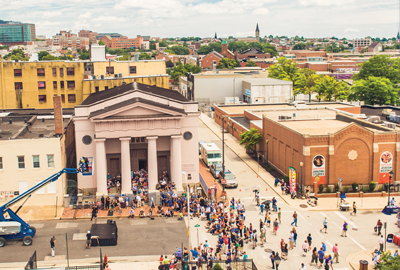
Jonestown is home to The Jewish Museum of Maryland’s (JMM) campus, including Baltimore’s oldest standing synagogues — the Lloyd Street Synagogue built in 1845 and B’nai Israel, which has had a continuous presence in the neighborhood since it was built in 1876. Baltimore’s first Hebrew school, Talmud Torah, started in the Lloyd Street Synagogue’s basement and the Jewish Educational Alliance (JEA) on nearby Baltimore Street was the progenitor of what would later become the Jewish Community Center (JCC).
“The deep Jewish communal roots of Jews in Jonestown provide a meaningful generational link that the JMM draws on its work within the neighborhood,” says Solomon Davis, executive director of the museum, an agency of The Associated: Jewish Federation of Baltimore. “It’s not only a connection to the past, it provides an opportunity to deepen Jewish engagement and community relations with residents, businesses and other community partners in the present.”
When Davis’s predecessor Marvin Pinkert came to the JMM eight years ago, there were plans for a museum expansion. But before the expansion, Pinkert felt it was necessary to become better acquainted with the surrounding community.
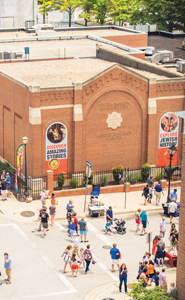
Pinkert attended meetings of the Jonestown Planning Council and Historic Jonestown, Inc. to get the lay of the land. He also recognized that it would be critical to collaborate with other neighborhood stakeholders.
In 2015, the JMM helped raise money for the Jonestown Vision Plan. As part of the fundraising campaign, they interviewed residents, business and religious leaders and cultural institutions, and prepared a plan for future expansion.
In recent years, Jonestown has seen significant growth and development. With the construction of the 60,000 square-foot Ronald McDonald House, the National Aquarium’s new Animal Care and Rescue Center and the expansion of the Helping Up Mission in Jonestown, the neighborhood is enjoying a major resurgence and drawing visitors from across the country.
Bob Gehman sits on the boards of Historic Jonestown, Inc. and the JMM. As executive director of Jonestown’s Helping Up Mission, a faith-based addiction recovery agency, he sees the importance of ensuring the health and growth of both organizations. “It’s in the interest of Helping Up and the JMM that Jonestown is safe and clean,” says Gehman.
He adds that men at Helping Up Mission, who are all in “spiritual recovery” from addiction, benefit from visiting the museum. “We take regular tours to expose them to community life and to broaden their perspectives. While we’re Christian and the museum is Jewish, we want them to be thinking of how other people practice their religion and live their lives. The idea of being good neighbors and appreciating different faiths and cultures contributes to our work. We have every reason to be positive about Historic Jonestown.”
Park Heights and Pikesville: Expanded Service Area
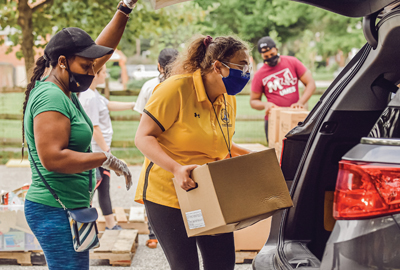
In the mid-20th century, many Jews settled in Park Heights. The Associated founded CHAI in 1984, with the mission of providing safe and affordable housing for older adults; promoting home ownership, and strengthening the Northwest Baltimore neighborhoods of Glen, Fallstaff, Cross Country, Cheswolde and Mount Washington.
“Over time, we’ve extended our work into neighboring communities like Central Park Heights and Pikesville,” says CHAI CEO Lisa Budlow.
In Central Park Heights, CHAI works in partnership with Park Heights Renaissance (PHR), a nonprofit community development organization that represents the area’s residents, businesses, schools and social service agencies with the goal of making Central Park Heights a great place to live and work.
A prime example is in the realm of housing development, Budlow says. “We partnered with PHR to open the Jean Yarborough Renaissance Gardens in 2014, and we own and operate Weinberg Place (formerly Concord House) across the street from Sinai Hospital. Both buildings are affordable, HUD-funded housing for seniors 62 and older.”
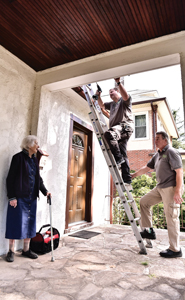
In addition, says Budlow, “We just received an award from HUD to build a new senior housing project in Central Park Heights and a 63-unit multi-family housing project.” CHAI is also working on a program to renovate vacant homes to be sold for homeownership.
CHAI, LifeBridge Health and PHR are all founding members of the Northwest Baltimore Partnership, an organization created to “implement housing-related strategies that positively impact residents,” says Yolanda Jiggetts, executive director of PHR. “Partnerships such as PHR and CHAI set the example of what can be accomplished when we align towards shared goals.”
Situated just north of Park Heights, Pikesville also benefits from CHAI’s efforts.
“Pikesville’s needs are like Park Heights’ — housing, additional recreational facilities, safety and green space,” says Budlow. CHAI hired a dedicated staff person to work with the community’s schools and neighborhood associations and has brought its popular home repair programs to Pikesville’s older adults.
Pimlico Redevelopment Project: A Boom for All of Park Heights
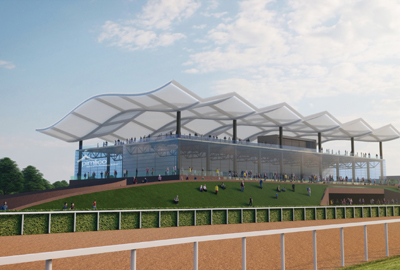
In the fall of 2019, The Stronach Group — which owns Pimlico and Laurel Park racetracks — struck a deal with the city of Baltimore. The Pimlico Redevelopment Project would keep the Preakness Stakes in Baltimore, where it has been for 145 years. The act would also enable the redevelopment of the racetrack and the surrounding area.
“What happens with Pimlico is so important for all of Northwest Baltimore,” says Howard Libit, executive director of the Baltimore Jewish Council (BJC). This deal offers the opportunity to encourage development all around Park Heights and makes it a draw for the community.”
The legislation turns over 50 acres of land to private developers for the construction of residential and commercial buildings in the Pimlico neighborhood. Pimlico’s infield would be used for multiple purposes including, athletic fields, farmer’s markets, concerts and festivals. It is estimated that the project will create as many as 1,500 new jobs.
CHAI and partners PHR and LifeBridge Health played an important role in convening neighborhood associations to support the legislation says Budlow. “There has been this imaginary line between the neighborhoods on either side of Northern Parkway. We’re trying to erase that line. Support for the Pimlico Redevelopment [Plan] has been one discussion.”
Adds Libit: “What happens in any part of Park Heights impacts all of Park Heights. We’re working with CHAI to get neighbors to dialogue and to break down barriers.”
Learn about some of our neighborhood work at chaibaltimore.org.
Subscribe to our newsletter
The Associated is a home for everyone in the Baltimore Jewish community. We offer several email lists to help people find a community, engage with their peers and support Jewish journeys around the world.
Join Our Mailing ListAdd Impact to Your Inbox
Sign up for our newsletter
Subscribe to our newsletter
The Associated is a home for everyone in the Baltimore Jewish community. We offer several email lists to help people find a community, engage with their peers and support Jewish journeys around the world.
Join Our Mailing List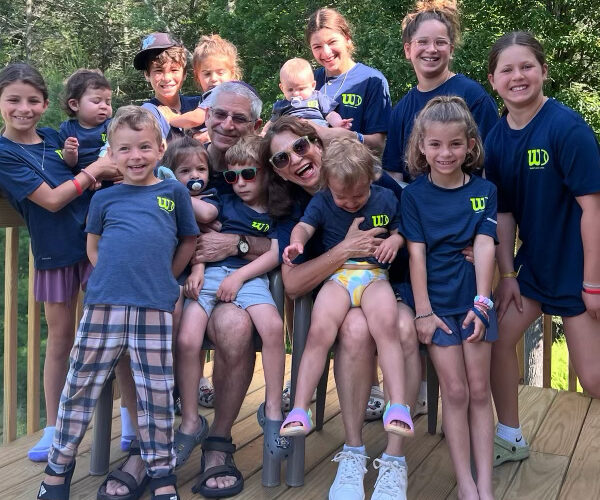
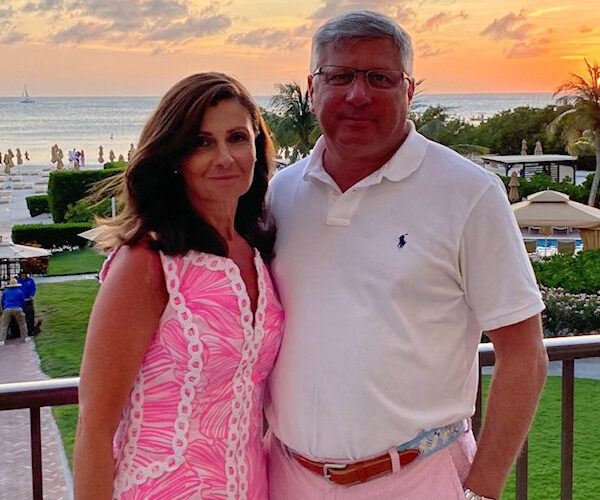
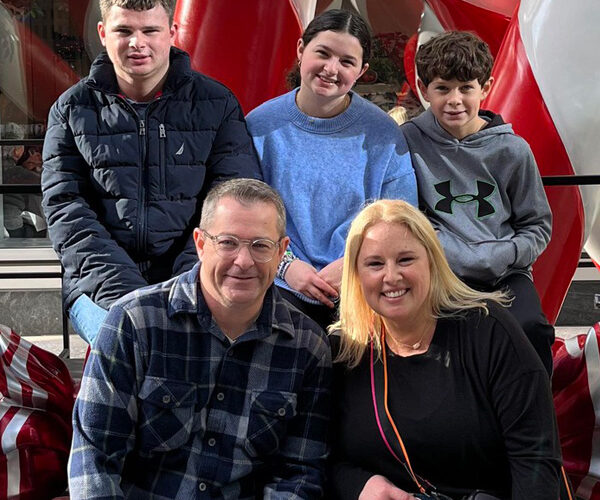
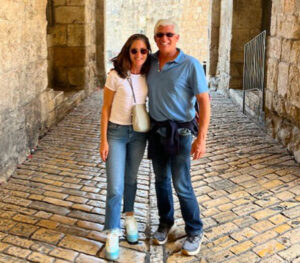
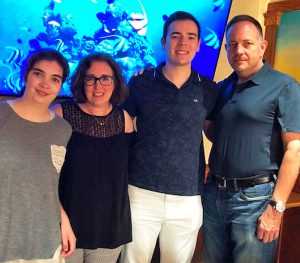

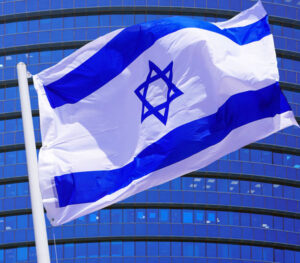
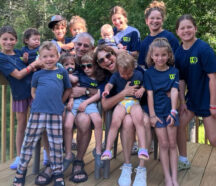
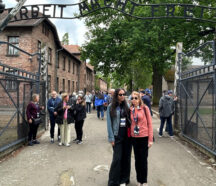
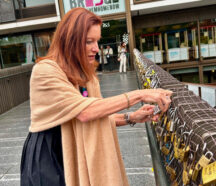
 Please Wait while we loading your video.
Please Wait while we loading your video.